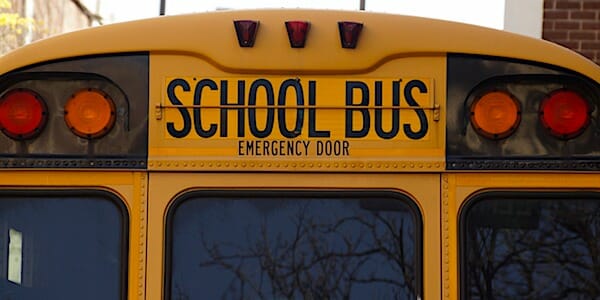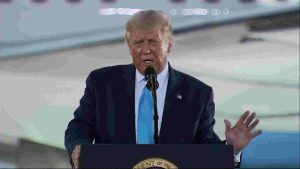“The science” supports Americans who are “anxious to get back to
work and to send their children to school,” contends Dr. Scott
Atlas, a new special adviser to President Trump and a member of the
White House Coronavirus Task Force.
Atlas, a senior fellow at Stanford University’s Hoover
Institution,
wrote in an op-ed for The Hill on Thursday that it’s clear from
medical science, the data and common sense that the economy should
reopen.
“While the lockdown may have been justified at the start, when
little data was known, we know far more about the virus today,” he
said. “It’s time we use all we have learned and all we have done to
reopen our schools and our economy safely and get back to restoring
America.”
Atlas, former professor and chief of neuroradiology at Stanford
University Medical Center, emphasized that the true risk of the
coronavirus is now known.
He pointed out that just 0.2% of U.S. deaths have been people
younger than 25, and 80% have been in people over 65, with the
average fatality age 78.
In addition, the CDC now says COVID-19 is the lone cause of
death in only 6% of the coronavirus deaths it has recorded.
“For deaths with conditions or causes in addition to COVID-19,
on average, there were 2.6 additional conditions or causes per
death,”
the CDC says on its website.
In June,
the CDC listed as high-risk individuals for COVID-19 people
with chronic kidney disease, COPD, obesity, heart failure, coronary
artery disease, sickle cell disease and Type 2 diabetes.
Children can go back to school, Atlas asserted, citing a Journal
of the American Medical Association study of North American
pediatric hospitals. The data “indicate that children are at far
greater risk of critical illness from influenza than from
COVID-19.”
More cases may result as social interactions increase, he said,
“but the overwhelming majority of cases are now occurring in
younger, low-risk people – decades younger, on average, than seen
in the spring.”
“And the vast majority of these people deal with the infection
without consequence; many don’t even know they have it.”
He pointed out an analysis of CDC data shows that the case
fatality rate has declined by approximately 85% from its peak.
That is partly because of improvements in protecting the most
vulnerable, particularly senior citizens.
Nevertheless, the economy has yet to fully reopen, he said, with
at least 16 states maintaining travel warnings and quarantines that
are not consistent with CDC guidelines.
In most states, he noted, retail stores are limited to pick-up
or reduced shopping capacity.
“Even in states where cases are low, restaurants are often
take-out only, and 42 states and territories have seating capacity
limited to 25 percent or 50 percent. Fitness centers and gyms have
largely reopened, but at reduced capacity.”
In addition, schools in many cities and states are opening on a
delayed or limited basis.
The Department of Education’s tracking says that of 5,425 major
school districts – about one-third of districts nationwide –
nearly half plan to operate on hybrid models and another 20% plan
to operate online only.
“That not only harms children, it prevents many parents from
working,” he said.
Atlas said a “flawed” assumption driving these restrictions is
that the number of cases is the most important metric to
follow.
“Yet, whatever effect these restrictions may have on cases, they
don’t eliminate the virus,” he said. “And they impose harms on
the country and its citizens, particularly when they require the
isolation of large segments of the low-risk and healthy, working
populations.”
Instead, he said, the administration is focused on a
“three-pronged, data-driven strategy that is saving lives while
safely reopening the economy and society, averting the disastrous
calamities of continued lockdown.”
First is protecting the high-risk group, providing resources to
assist nursing homes and elderly individuals living in in-home care
and senior centers. Second is monitoring hospitals and ICUs to
prevent overcrowding. And third is guiding businesses and schools
with common-sense mitigation measures.
‘No need for fear’
On Monday, Atlas
was at a panel discussion in Tallahassee, Florida, with Republican
Gov. Ron DeSantisin which he pointed out that infections and
deaths are declining in the Sun Belt states.
“The American public should feel cautiously optimistic here
about what’s going on,” Atlas said. “There is no need for fear at
this point.”
Emphasizing that COVID-19 poses little risk to young people, he
said college football should go on, and schools should be open to
in-person classes.
“This shouldn’t really be a point of controversy. College
football should be open. It can be done safely,” Atlas said.
“College sports is a big part of America and it’s a big part of
the economic engine.”
Atlas said the U.S. is “the only nation among our peer nations
that are hysterical about opening schools … the only country that
seems to be willing to sacrifice our children out of our own
fear.”

The CDC’s Provisional Death Counts for Coronavirus Disease 2019
chart shows the drop in deaths for all ages after a peak April
18
He said testing people for coronavirus who do not have symptoms
is counter-productive.
“When you start a program of testing simply to detect positive
cases among asymptomatic low-risk groups, the outcome from that is
to close the schools,” Atlas said. “And the goal of testing is not
to close things. The goal of testing is to protect the vulnerable
while we open the schools and open the economy.”
See remarks by Atlas:
Dr. Scott Atlas: “We are the
only nation among our peer nations that are hysterical about
opening schools…the only country that seems to be willing to
sacrifice our children out of our own fear†(this 8/31/20 FL
presser https://t.co/SLvDKcLOJM) pic.twitter.com/8KIy2WmBpC— Andrew Bostom (@andrewbostom) August
31, 2020
The left-leaning World Council of Churches also made a case for
sending children back to the classroom, arguing the damage done by
quarantines far outweighs any health risks from the coronavirus
itself,
Breitbart News reported.
“For children, the COVID-19 pandemic is more about the impact of
containment measures than a health issue, as such,” the WCC states
on its website. “Confinement may put children at risk for domestic
violence and affect their rights to education, care and
protection.”
The WCC cited Cornelius Williams, associate director and global
chief of child protection for UNICEF’s program division, who called
the lockdowns a “crisis within a crisis, where containment measures
pose a serious threat to basic rights, such as education, care,
protection, decent living standards and even the right to play with
other kids.”
CNN published an article Friday titled “‘Reassuring’ study finds
children have small risk of death and severe illness from
coronavirus.”
It cited recent studies showing severe illness and death remain
rare in children with COVID-19.
The Centers for Disease Control indicates on its website that
just 0.2% of the recorded deaths were people less than 25 years
old.
What happened to ‘flatten the curve’
In a Fox News
interview in early August, Atlas noted that when the lockdowns
were implemented last spring in response to the pandemic, officials
emphasized the objective was to “flatten the curve,” meaning to
stretch out the number of cases over time to avoid overwhelming
hospitals.
Somehow, the objective shifted to eliminating cases, which Atlas
always has believed was the wrong approach.
Protecting the higher-risk populations and allowing the virus to
burn out, or attenuate, through infecting people who are at
low-risk of serious illness should be the aim, he said in a Fox
News interview with Sandra Smith, who was guest-hosting “The
Story.”
“I think there is a huge disconnect here in what the goal of
public policy is here,” said Atlas.
“The goal of stopping COVID-19 cases is not the appropriate
goal. The goal is simply twofold, to protect the people who are
going to have a serious problem or die, that’s the high-risk
population, and to stop hospital overcrowding.”

Dr. Scott. W. Atlas (Twitter)
Atlas argued against focusing on testing college students, for
example, when the aim should be “to protect the high-risk group
from getting infected.”
He said there “should never be and there is no goal to stop
college students from getting an infection they have no problem
with.”
He pointed out that 99.8% of deaths from COVID-19 are in people
over 24.
“They can do things if they are still afraid from a distance but
you don’t lock down healthy people,” he said. “It’s just
irrational, really.”
Smith asked whether or not students who are asymptomatic would
pose a risk to vulnerable people with whom they come in
contact.
Atlas replied that targeting resources to the vulnerable is the
best way to protect them.
He insisted that mass testing “destroys the ability to get
critical information on the tests from the people who are at high
risk.”
“We need to keep them safe,” Atlas said. “When we have testing
delays because we are doing a million tests every day, it’s getting
to be crazy already. We need to be able to get the results from the
high-risk tests. No one else.”
A Danish professor has published a paper of his
country-by-country analysis concluding the spring 2020 lockdowns in
response to the coronavirus pandemic had no effect on death
rates.
Further, wrote Professor Christian Bjørnskov of Aarhus
University, the unprecedented shutdown policies “appear to be
substantial long-run government failures.”
His paper,
“Did Lockdown Work? An Economist’s Cross-Country Comparison,”
sought to “explore the association between the severity of lockdown
policies in the first half of 2020 and mortality rates.”
The professor of economics used two indices from the University
of Oxford’s school of government as COVID-19 policy measures and
compared weekly mortality rates from 24 European countries in the
first halves of 2017-2020.
“I find no clear association between lockdown policies and
mortality development,” he wrote.
His paper reviewed two other studies that reached the same
conclusion.
“The lockdowns in most Western countries have thrown the world
into the most severe recession since World War II and the most
rapidly developing recession ever seen in mature market economies,”
Bjørnskov wrote. “They have also caused an erosion of fundamental
rights and the separation of powers in large part of the world as
both democratic and autocratic regimes have misused their emergency
powers and ignored constitutional limits to policy-making.”
The post
Dr. Scott Atlas: Time to reopen schools, economy appeared first
on WND.




















